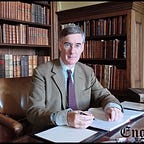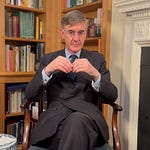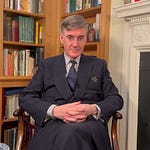God, who in thy transcendent providence was pleased to cause thy servant Francis to be numbered among the supreme pontiffs, we pray thee to admit him, who on earth was vicar of thy only begotten Son, into the company of holy pontiffs now and forevermore.*
The Pope's death has dominated news headlines for days, and reports from Rome will continue to be prominent until his successor is elected. In a secular nation, something spiritual has distracted the agnostics.
This is partly because the papacy, although dismissed by Stalin, who said, “The Pope! How many divisions has he got?” remains the High Priest of many hundreds of millions of people - the Vatican says 1.4 billion altogether - and his words influence them, even if they are not enforceable in temporal law. This gives all popes an influence over people's lives, even if they do not follow every word of his instruction.
It is also because of the spiritual example Pope Francis delivered in a world with so little spiritual comfort. In this, his death was, as with that of St. Pope John Paul II, a true inspiration. Although both of them are important popes, it may truly be said of each of them that “nothing in his life became him like the leaving it”. Both followed Christ's path of suffering.

For much of Lent, Pope Francis was in hospital, hardly able to breathe, and yet, like Christ, he showed himself to the crowds in his infirmity and lacking the normal papal dignity. This was true of them both, as neither could say more than a few words near the end. Yet they struggled on, as Christ did, carrying his cross.
In their infirmity, they strode boldly to meet death, not fearing it, but seeing it as a culmination of their faith. Death had been conquered by their Saviour on the cross and by the resurrection; it, therefore, held no terrors for His vicars.
Accepting their own suffering is perhaps the most powerful argument they could give against the evils of assisted suicide. While death is not the end, but the beginning of a new life, it ought not to be brought forward by man's own action.













